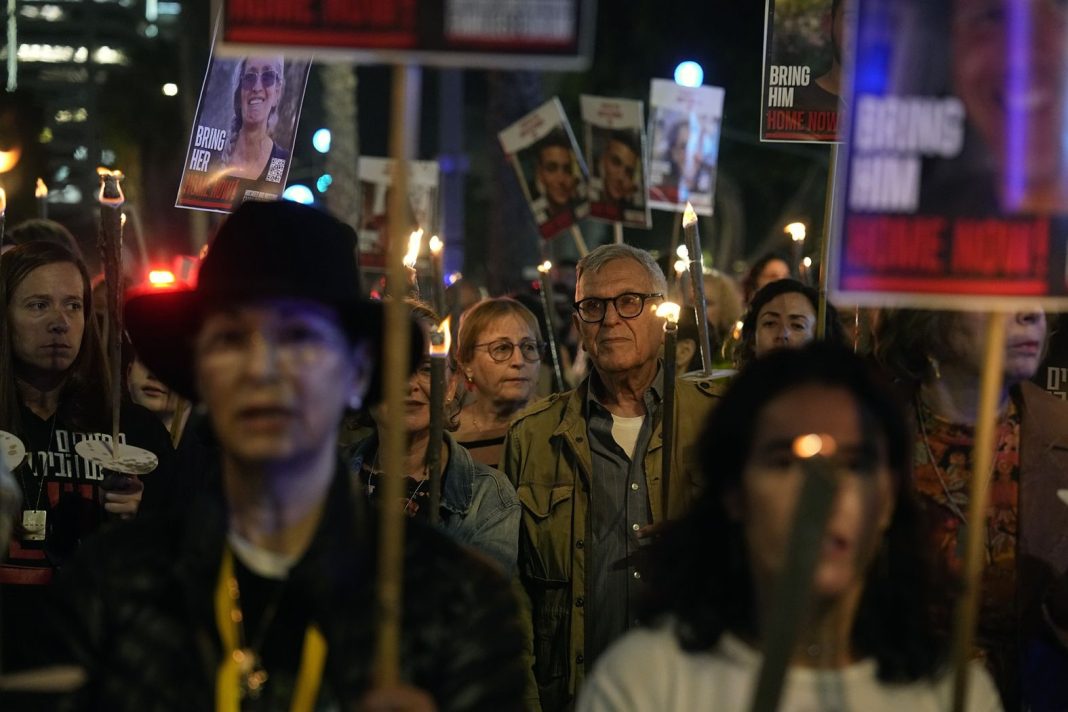In a video statement on Saturday, Herzi Halevi, who is leading Israel’s war in Gaza, said the IDF bears full responsibility for the “painful event” and pledged to “do everything to prevent the recurrence of such cases in the continuation of the fighting”.
“The three hostages who survived seventy hellish days, moved towards the IDF soldiers, and were killed by our forces’ fire,” Halevi continued, adding that “they moved without shirts so that we would not suspect them of carrying a bomb on their bodies, and held a white cloth so that we would understand.”
“We did not succeed in this case. We feel the deep sorrow of the families for the deaths of the hostages,” he continued, stating that “the shooting at the hostages was carried out contrary to the open-fire regulations.”
“It is forbidden to shoot at those who raise a white flag and ask to surrender. But this shooting was carried out during combat and under pressure,” Halevi noted.
Yotam Haim, Samer Al-Talalka, and Alon Shamriz, all in their 20s, were kidnapped from Israeli communities during the Hamas attack on October 7.
An initial investigation has revealed that the three emerged shirtless from a building “tens of meters” away from a group of Israeli troops in the Gaza City neighborhood of Shejaiya, holding up a stick with a white cloth on it. They stood near the building, which had the words ‘help’ and ‘SOS’ spray-painted on the exterior walls.
According to an Israeli military official who spoke to journalists on condition of anonymity, one of the IDF soldiers felt threatened and opened fire, killing two of the men instantly. The third ran back to the building and screamed ‘help’ in Hebrew from inside, at which point the brigade commander ordered the troops to stop shooting, but another burst of fire fatally wounded him and he later died.
Israeli Prime Minister Benjamin Netanyahu called the incident a “terrible tragedy”. In a national address on Saturday, he indicated that there will be no change in Israel’s military campaign.
“We are as committed as ever to continue until the end, until we dismantle Hamas, until we return all our hostages,” he stated.
Critics, however, say the mistaken killing shows that the government is more concerned about eradicating Hamas than freeing the hostages, and some believe that public outrage over the incident may pressure the government into renewing negotiations with the Palestinian group over the remaining captives.
Around 250 Israeli captives were taken by Hamas during the incursion in October. More than 100 hostages were released during a short-lived ceasefire last month, with 129 people remaining in custody.
